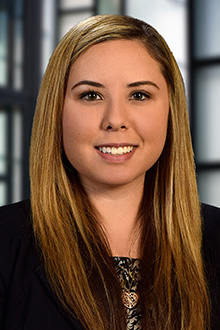Earlier this week, the California Supreme Court, in Vasilenko, et al. v. Grace Family Church, (November 13, 2017, S235412) __ Cal.5th __, addressed whether a categorical exception to the general rule to “take ordinary care in the conduct of one’s activities” should be made exempting landowners of a premises abutting a public street from liability to invitees for placing a parking lot in a location that requires invitees to cross the public street. (Slip opn., pp. 4-5.) The Supreme Court held that the Grace Family Church (“the Church”) did not owe a duty to protect invitees from the obvious dangers of a public street where the Church did no more than maintain the parking lot and where there were no allegations of conditions magnifying the risk of harm. (Id. at p. 16.)
Plaintiff was struck by a vehicle as he crossed a public street between the main premises of the Church to the Church’s overflow parking area. (Slip opn., p. 1.) Plaintiff alleged the Church owed him a duty of care to assist him in safely crossing the public street and was negligent in failing to do so. The Church contended landowners have no duty to protect others from dangers on abutting streets unless the landowner created the dangers. (Ibid.) The Church moved for summary judgment on the ground that it did not have a duty to assist plaintiff with crossing a public street it did not own, possess, or control. (Id. at p. 3.) The trial court granted summary judgment, a divided panel of the Court of Appeal, Third Appellate District (Sacramento) reversed, and the Supreme Court granted review, ultimately affirming the trial court’s decision. (Ibid.)
In determining whether the Church owed a duty to plaintiff, the Supreme Court, looked at the factors in Rowland v. Christian (1968) 69 Cal.2d 108, to analyze whether in the absence of the existence of a statutory duty, policy considerations weighed in favor of carving out an entire category of cases from the general duty rule. (Slip opn., p. 4.) The court separated the Rowland factors into two categories. The first category addressed the foreseeability of the relevant injury and the second category addressed public policy concerns to support excluding certain kinds of plaintiffs or injuries from relief. (Id. at p. 6.) The court concluded that only two of the Rowland factors weighed in favor of creating a duty: 1) foreseeability of the harm to the plaintiff; and 2) certainty the plaintiff was injured and the injury was compensable at law. (Id. at p. 16.) The court held the remaining four Rowland factors weighed against a finding of duty: 1) closeness; 2) preventing future harm; 3) burden; and 4) moral blame. The court emphasized that in this case, “the policy of preventing future harm” looms particularly large because of the fact there are limited steps a landowner can take to reduce the risk of injury to invitees, compared to the ability of invitees and drivers to prevent injury. Further, the court reasoned that imposing a duty under these circumstances would discourage landowners from designating parking options for invitees. Thus, the court held, a landowner who does no more than site and maintain a parking lot that requires invitees to cross a public street to reach the landowner’s premises does not owe a duty to protect those invitees from the obvious dangers on the public street. The court declined to express a view on the existence of duty in a situation where some condition of the premises obscured or magnified the risk of harm posed by the street, or that the landowner knew its invitees would not appreciate the danger of the public street. (Ibid.)
